Synchronized solutions are needed to achieve this challenging goal.
Promote the improvement of education quality
Along with the implementation of educational quality assessment, the work of building national standard schools in recent times has contributed to the development of education in the direction of standardization, modernization and socialization.
The practice of building schools that meet national standards and assessing the quality of education in localities shows that this is a correct policy, in line with the Party's will and the people's will, and accepted by society; creating a new look, a new position, a positive and clear change in schools, bringing practical benefits to students.
It can be said that the Party and the State have paid great attention to the work of building schools that meet national standards and assessing the quality of education. In recent times, this work has achieved many important results, contributing to improving the quality of education in schools.
Mr. Pham Quoc Khanh - Deputy Director of the Department of Quality Management ( Ministry of Education and Training ) said that as of May 31, 2025, according to the statistics and data compiled from reports of the Departments of Education and Training, nationwide, 65% of the total number of kindergartens, primary schools, secondary schools, high schools and general schools with many levels of education have met national standards. Of which, 48.9% of the total number of schools have met national standards level 1 and 16.1% of the total number of schools have met national standards level 2.
Education management levels and schools have access to progressive management models; there has been a change in awareness in education management. School management capacity and teaching and learning management have been enhanced. Through self-assessment and external assessment, many schools have seen the current quality status, strengths and weaknesses, and have developed more realistic and effective quality improvement plans.
The activities of assessing the quality of education and recognizing schools as meeting national standards create motivation for the assessment work in general, contributing to promoting the improvement of the quality of education. In educational institutions that have been assessed for the quality of education and recognized as meeting national standards, most of the managers, teachers, staff and students are initially familiar with the "culture of quality", and have the awareness and responsibility to build better and better schools.
However, Mr. Pham Quoc Khanh also frankly pointed out some limitations. Accordingly, achieving level 4 standards is still a challenge for educational institutions; lack of support resources, limited facilities due to limited investment capital, especially in difficult areas. The external assessment team has many concurrent positions, has not spent enough time studying documents, and has not effectively implemented improvement work after external assessment. Inspection and supervision work before, during and after educational quality assessment is not carried out regularly. Regular expenditures are very limited...
Affirming many results in the work of building national standard schools in recent times, Mr. Nguyen Tan - Director of the Department of Education and Training of Hue City also pointed out a number of difficulties. Accordingly, the set of assessment standards still has criteria that are not suitable to reality. Some requirements on land area, subject classrooms, teaching equipment, number of students per class, etc. are regulated according to the general standard, so many schools in mountainous areas, remote areas, and central areas with rapidly increasing population density cannot meet the requirements in the short term.
This leads to a situation where some schools, despite their efforts to improve quality, still find it difficult to achieve high evaluation levels, limiting the motivation to improve. In actual implementation, the requirements of some criteria and indicators are qualitative and difficult to implement.
Lack of investment resources, especially in infrastructure in disadvantaged areas, limited land fund; many schools are designed in an old way that does not meet new standards, making it difficult to meet national standards. Coordination mechanisms between levels and sectors are not tight; socialization of education is still weak, not mobilizing many resources to support the construction of schools that meet national standards...
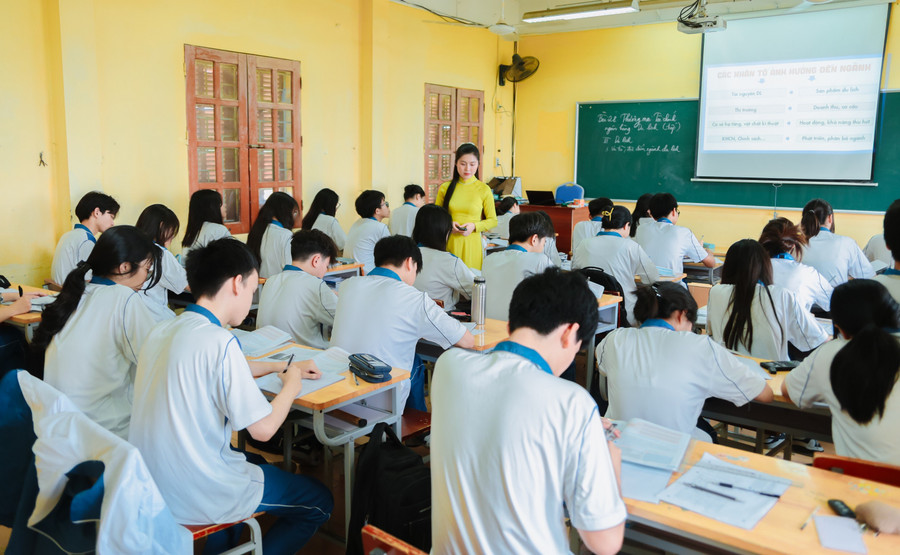
Need to be very determined, resolute
Proposing innovative solutions to ensure educational quality and recognize national standard schools, Mr. Nguyen The Son - Deputy Director of the Department of General Education (Ministry of Education and Training) emphasized: Sectors, localities and educational institutions must consider this a key task to improve the quality of general education.
Departments of Education and Training and local authorities need to advise on the concretization of Resolution 71-NQ/TW of the Politburo and Resolution 281/NQ-CP of the Government; include the target of building national standard schools in the Resolutions of Party Congresses at all levels, creating political determination at the local level. The implementation must have a roadmap and feasible solutions, ensuring that by 2030 at least 80% of general schools meet national standards.
“This is a target that requires great determination and determination.” Emphasizing this, Mr. Nguyen The Son also noted the need to advise on reviewing and rationally arranging general education facilities; ensuring adequate resources, staff conditions, and physical facilities when implementing two-level government, on the principle of being consistent with actual conditions, meeting standards and criteria for quality assessment and national standard schools. Digital transformation must become a key factor for innovation and breakthroughs; at the same time, continue to review relevant regulations, standards, criteria, and evidence for suitability and feasibility.
From the implementation reality in the locality, Mr. Nguyen Tan said that adjusting the set of standards and procedures, considering assessment results as a mandatory basis for quality improvement, enhancing post-assessment support and applying information technology will help increase the effectiveness of inspection and recognition of national standards.
Regarding the set of assessment standards, Mr. Nguyen Tan proposed to conduct a comprehensive review of current standards and criteria to eliminate duplicate and overlapping content; add indicators that reflect the actual quality and effectiveness of educational activities such as: the level of student progress over time, the level of parent satisfaction, the level of application of information technology in management and teaching, etc. Thereby, ensuring that the set of criteria is both complete and focuses on practical results and impacts.
Along with that, add specific indicators and figures (ratio, % achieved) in addition to qualitative descriptions, so that self-assessment and external assessment are more transparent and objective, reducing the emotional state when assessing. Allow localities to be flexible in organizing implementation.
Specifically, with conditional criteria (land area, facilities, number of students/class, etc.), the Ministry of Education and Training issues a general standard framework and minimum guidelines. Provincial/municipal People's Committees, based on actual conditions, develop a roadmap, support mechanisms and prioritize investment so that schools can gradually meet the standards, ensuring fairness but feasibility, especially for disadvantaged areas.
There is a regular update mechanism with the establishment of a periodic process (2-3 years) to consult with localities and educational institutions to adjust the criteria, helping the set of standards to always be "alive" and suitable for practice.
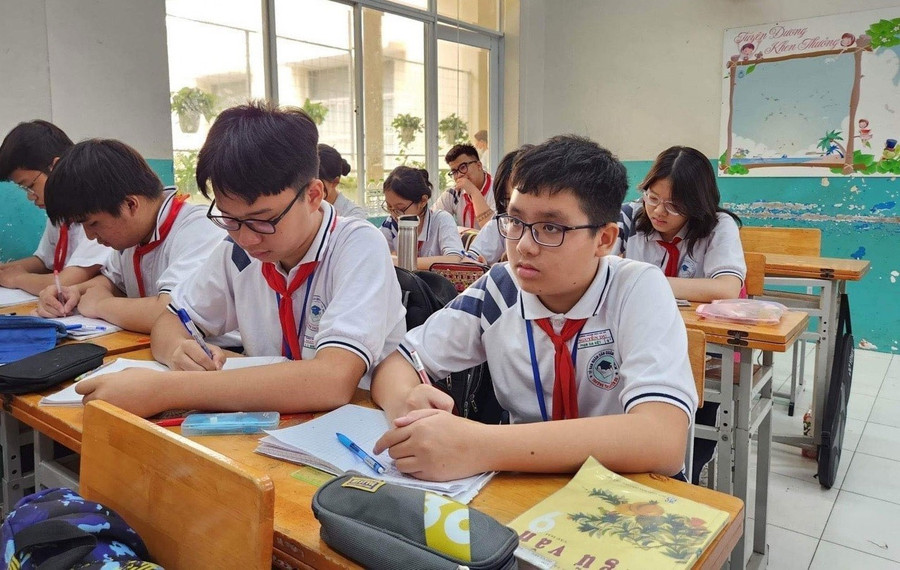
Synchronizing solutions to meet expectations of quality educational equity
To improve the effectiveness of quality assurance work and promote the construction of national standard schools in the coming period, Mr. Pham Quoc Khanh said that it is necessary to focus on implementing the following solutions:
Firstly, raise awareness and responsibility. Accordingly, strengthen propaganda and dissemination so that managers, teachers, students and the community clearly understand the role and significance of ensuring educational quality, as well as building schools that meet national standards. Identify this as a key and regular task of educational institutions, associated with the responsibility of the head. Implement the 6 clear principles in management of educational quality assurance (clear person/unit, clear work, clear time, clear responsibility, clear product and clear authority in performing tasks).
Second, perfecting mechanisms, policies and directing implementation. Specifically, advising on the promulgation and supplementation of legal documents, timely and synchronous guidance, suitable to the reality of each level of education. Strengthening the role of direction, inspection and supervision of the Ministry of Education and Training, the Department of Education and Training, the Department of Culture and Social Affairs of the People's Committee at the commune level to ensure consistency in the whole system. Doing a good job of advising local Party committees and authorities to have direction in implementing the work of ensuring educational quality and building schools that meet national standards.
Third, ensure resources and financial mechanisms with reasonable allocation of funds for quality assurance activities and building national standard schools; prioritize remote, isolated and particularly disadvantaged areas. Promote socialization and mobilize resources from the community, organizations and businesses to improve facilities and equipment.
Fourth, improve the capacity of the team of managers and teachers to effectively carry out the work of ensuring the quality of education and building schools that meet national standards. Develop and implement a plan for regular training and development for the team of quality managers to improve their professional capacity and professionalism. Have a mechanism for selection, use and appropriate treatment to stabilize and maintain a high-quality assessment team.
Fifth, apply information technology and national databases. Specifically, build and complete a national database on education quality assurance and national standard schools, linked with education sector data. Build and increase the use of software to support self-assessment and external assessment to increase transparency, reduce administrative procedures, and improve management efficiency.
Sixth, there is a mechanism for monitoring and supervising after self-assessment and after recognition of national standard schools. Issue regulations on the responsibilities of educational institutions in periodically reporting improvement results after self-assessment and recognition of national standard schools. Clearly define the role of the Department and the Department of Culture and Social Affairs of the People's Committee at the commune level in supporting, monitoring, and accompanying educational institutions in implementing improvement recommendations.
Seventh, amend, supplement and update the set of quality assessment standards used to assess, improve quality and assess national standard schools. The content of assessment standards focuses on requirements for output standards, innovation in teaching and learning methods, staff development, strengthening conditions for quality assurance and improving school management efficiency; ensuring comprehensive, inclusive and fair assessment; harmonious use of quantitative and qualitative criteria.
The national standards are common but still promote the diversity and superiority of each school and locality and aim to improve standards in the spirit of Resolution No. 71-NQ/TW. The standards help schools perfect their own quality assurance system, serve the assessment, recognition of meeting quality standards, national standards and continuously improve quality.
Finally, strengthen communication work and create social consensus. Praise and replicate advanced models and examples in ensuring educational quality and building schools that meet national standards.
“To implement Resolution No. 71-NQ/TW and Resolution 281/NQ-CP of the Government, from now on, local levels need to specify targets for the entire term, have mid-term assessments, make medium-term investments for quality assurance conditions, mobilize resources to allocate focus/key points, and resolve difficulties and problems during implementation.
“The synchronization, consistency and creativity in leadership, along with the enthusiasm and scientific spirit of the team of teachers and managers will be the decisive factors to help the Vietnamese education sector successfully implement the goals of Resolution 71-NQ/TW, meeting people's expectations for equitable and quality education,” Mr. Pham Quoc Khanh emphasized.
“The goal of having 80% of general education facilities meet national standards by 2030 has special significance for ensuring fairness and improving the quality of education in Vietnam. This is also a challenge, requiring correct awareness and effective methods.
If in the 2020-2021 school year only 31% of schools met the standards, by 2025 this number had increased to an average of 65%. Looking at those results, striving for an additional 15% in the 2026-2030 period is completely feasible." - Mr. Pham Quoc Khanh - Deputy Director of the Department of Quality Management (Ministry of Education and Training)
Source: https://giaoducthoidai.vn/truong-chuan-quoc-gia-tu-quyet-tam-chinh-tri-den-giai-phap-thuc-thi-post750295.html


![[Photo] Prime Minister Pham Minh Chinh chairs the Government's online conference with localities](https://vphoto.vietnam.vn/thumb/1200x675/vietnam/resource/IMAGE/2025/10/5/264793cfb4404c63a701d235ff43e1bd)



![[Photo] Prime Minister Pham Minh Chinh launched a peak emulation campaign to achieve achievements in celebration of the 14th National Party Congress](https://vphoto.vietnam.vn/thumb/1200x675/vietnam/resource/IMAGE/2025/10/5/8869ec5cdbc740f58fbf2ae73f065076)

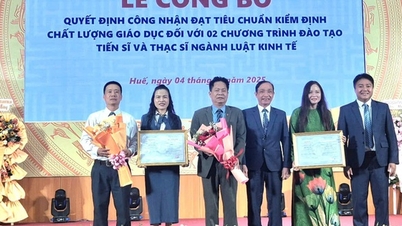

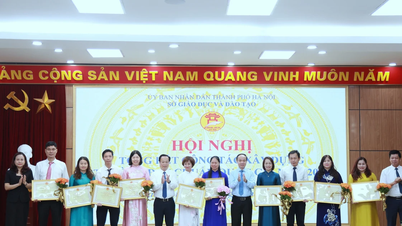
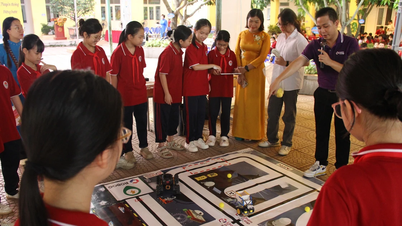
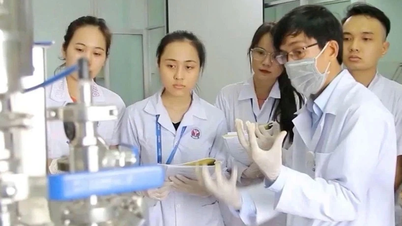
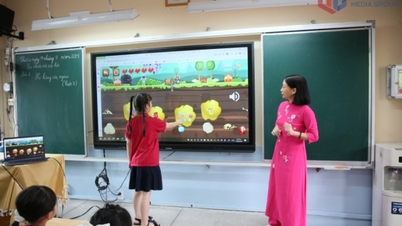




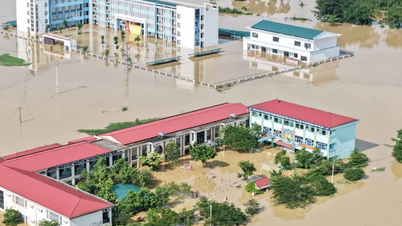
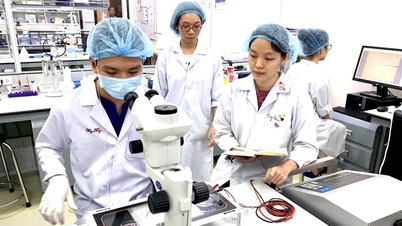

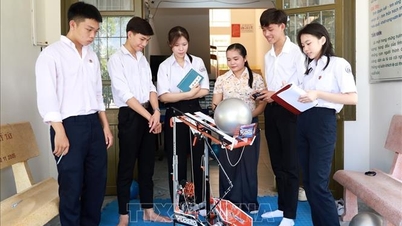



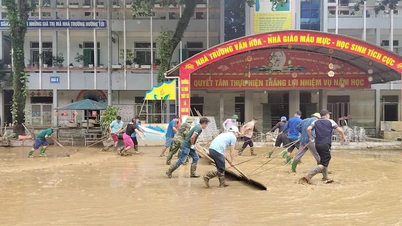







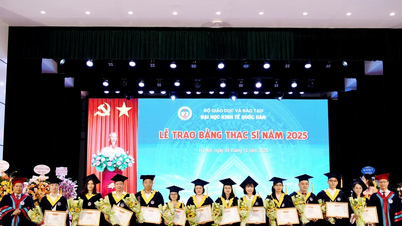
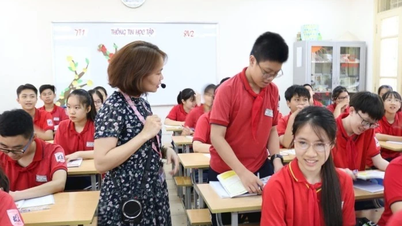


























![[VIDEO] Summary of Petrovietnam's 50th Anniversary Ceremony](https://vphoto.vietnam.vn/thumb/402x226/vietnam/resource/IMAGE/2025/10/4/abe133bdb8114793a16d4fe3e5bd0f12)

![[VIDEO] GENERAL SECRETARY TO LAM AWARDS PETROVIETNAM 8 GOLDEN WORDS: "PIONEER - EXCELLENT - SUSTAINABLE - GLOBAL"](https://vphoto.vietnam.vn/thumb/402x226/vietnam/resource/IMAGE/2025/7/23/c2fdb48863e846cfa9fb8e6ea9cf44e7)

















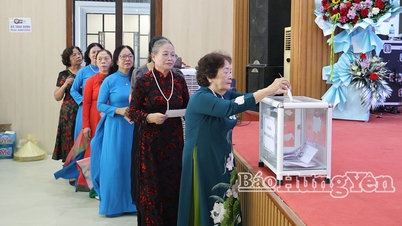


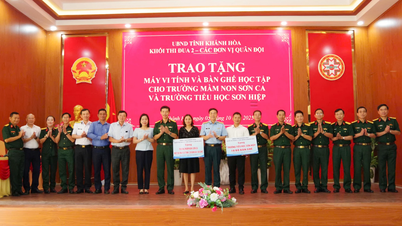















Comment (0)